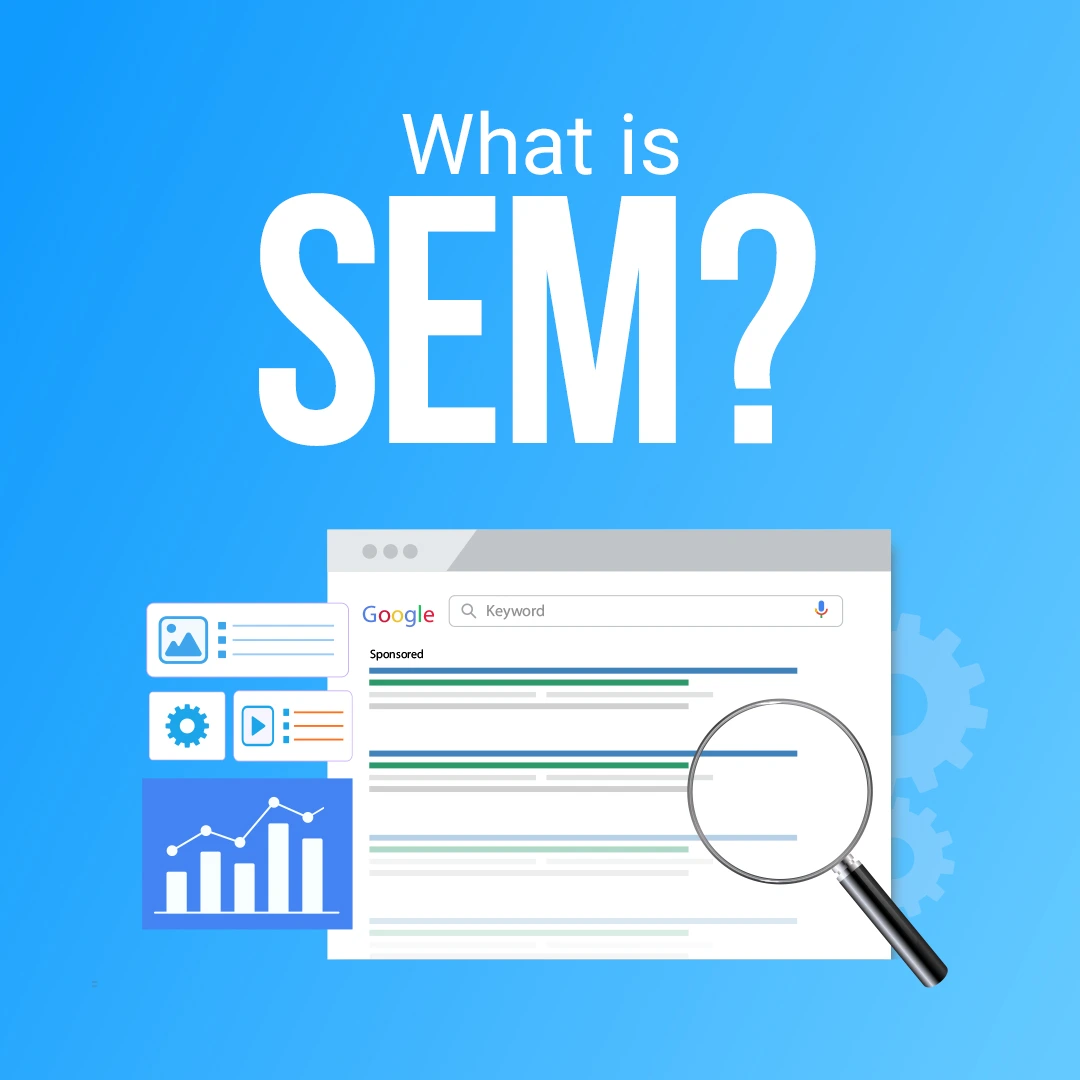
What is SEM?
SEM is a digital marketing strategy that involves promoting your website on your search engine using paid advertising techniques.
SEO vs SEM
SEO focuses only on organic traffic, whereas SEM focuses on Paid advertising.
Benefits of SEM
-
Increased Website Traffic: SEM can quickly drive targeted traffic to your website.
-
Improved Brand Visibility: Appearing at the top of search engine results can significantly enhance brand awareness.
-
Targeted Audience Reach: SEM allows you to target specific demographics, interests, and behaviors.
-
Measurable Results: SEM provides detailed analytics to track the performance of your campaigns.
-
Fast Results: SEM campaigns can start generating results within a short period.
Generally, organic traffic improvement through SEO techniques is better, but It will take a long time to see results. For short-term marketing efforts, SEM is the better strategy.
How do I Implement SEM?
Google ads and Bing ads are the two most popular services through which you can advertise your business, products, or services. Google currently boasts 1 billion active users per day compared to 100 million on Bing. Therefore, it will be more expensive to advertise on Google, and it will also be more challenging to compete with others for the exact keywords or keyword phrases. However, Google ads have advantages, such as advertising on massive social media platforms like YouTube.
What are the SEM techniques?
Now that you know the services through which you can perform SEM, Here are some SEM fundamentals:
Keyword Research:
-
Identify relevant keywords that potential customers are searching for.
-
Use keyword research tools to uncover high-traffic, low-competition keywords.
-
Categorise keywords into match types: exact match, phrase match, and broad match.
Ad Creation:
-
Craft compelling ad copy that grabs attention and encourages clicks.
-
Write clear and concise headlines and descriptions.
-
Include a strong call to action (CTA) to guide users to take the desired action.
Bid Management:
-
Set appropriate bids for your keywords to determine your ad's position on the SERP.
-
Use bidding strategies like manual bidding, automated bidding, and maximum CPC bidding.
-
Monitor and adjust bids regularly to optimize your budget.
Landing Page Optimization:
-
Create high-quality landing pages that are relevant to your ad and keywords.
-
Ensure fast loading times, clear calls to action, and a seamless user experience.
-
Optimise landing pages for conversions, such as form submissions or product purchases.
Campaign Tracking and Analysis:
-
Use analytics tools to track the performance of your SEM campaigns.
-
Monitor critical metrics like click-through rate (CTR), cost per click (CPC), conversion rate, and return on investment (ROI).
-
Analyse campaign data to identify areas for improvement and make data-driven decisions.
Best Practices for SEM
-
Keyword Research: Conduct thorough keyword research to identify the most relevant and profitable keywords.
-
Ad Copy: Write compelling ad copy that highlights the unique selling points of your offer.
-
Landing Page Optimization: Create high-quality landing pages that are optimised for conversions.
-
Bid Management: Set competitive bids to ensure your ads appear in top positions.
A/B Testing: Continuously test different ad variations to optimise performance.
-
Mobile Optimization: Ensure your ads and landing pages are mobile-friendly.
-
Negative Keywords: Use negative keywords to exclude irrelevant search terms.
-
Geo-Targeting: Target specific geographic locations to reach your ideal audience.
-
Device Targeting: Optimize your campaigns for different devices (desktop, mobile, tablet).
-
Ad Extensions: Utilize ad extensions to provide additional information and improve click-through rates.
Common SEM Mistakes to Avoid
-
Poor Keyword Research: Not targeting relevant keywords can lead to a wasted budget.
-
Low-Quality Ad Copy: Unclear and irrelevant ad copy can deter clicks.
-
Neglecting Landing Page Optimization: Poorly designed landing pages can hurt conversion rates.
-
Ignoring Mobile Optimization: Mobile-friendly ads and landing pages are crucial for success.
Failing to Track and Analyze: Without proper tracking, it's difficult to measure performance.
Conclusion
By understanding the fundamentals of SEM and implementing effective strategies, you can harness the power of search engine marketing to drive significant growth for your business. Remember to stay updated with the latest trends and best practices to stay ahead of the competition.

